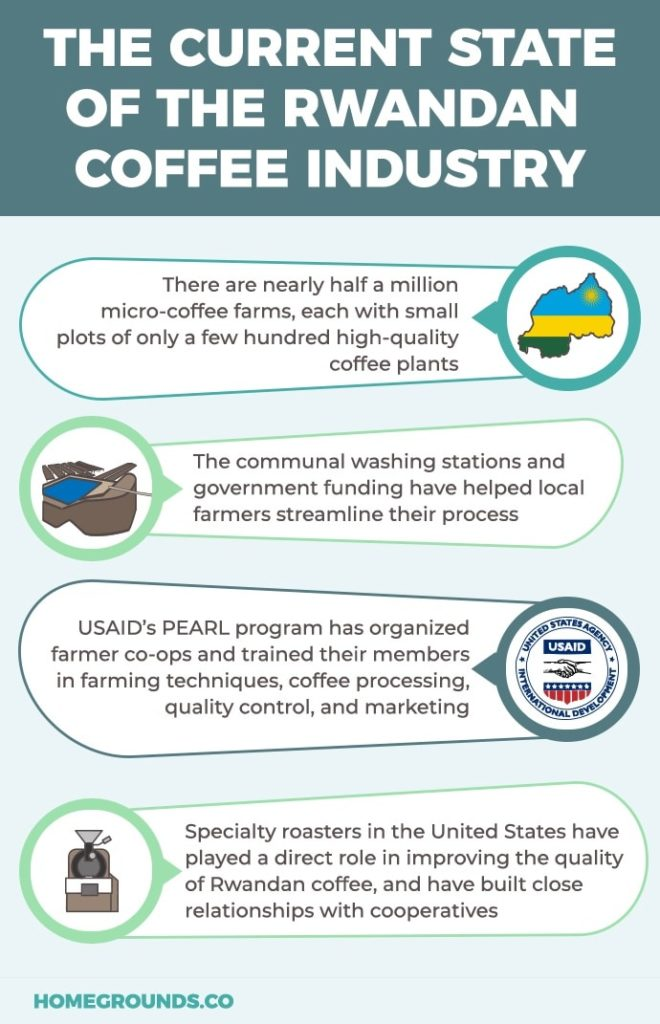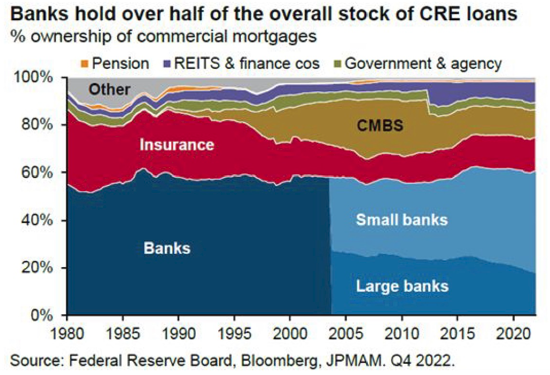The Rwanda coffee industry has emerged as a beacon of hope for women empowerment and economic transformation in the region. With over 200 Rwandan coffee cooperatives established in recent years, women are increasingly taking on essential roles in coffee production, leading to significant social benefits such as domestic violence reduction. The involvement of women in these cooperatives not only enhances their financial independence but also positively impacts the economic landscape of rural communities. As they engage in coffee production, they are not just harvesting cherries; they are cultivating a safer environment for themselves and their families. The success of these cooperatives illustrates the profound economic impact on women, as they break free from the traditional roles and gain a voice in both their households and communities.
In recent years, there has been a remarkable transformation within Rwanda’s coffee sector, heralding a new era of female participation and empowerment. The resurgence of specialty coffee production has paved the way for numerous cooperative ventures, significantly benefiting economically marginalized women. By engaging in this vital industry, women have gained not only financial autonomy but also the ability to challenge societal norms that contribute to domestic abuse. The economic dynamics of coffee cultivation in Rwanda have consequently nurtured an environment that fosters women’s empowerment and advocates for a reduction in domestic violence. This shift underscores the critical connection between economic engagement and social well-being, highlighting how female involvement in agriculture can lead to broader changes within communities.
Empowering Women Through Rwanda’s Coffee Cooperatives
The Rwandan coffee industry has witnessed a significant transformation over the past few decades, particularly through the establishment of coffee cooperatives that prioritize women’s participation. These cooperatives have created a framework for women to engage in coffee production economically, shifting their roles from unpaid family contributors to recognized wage earners. By facilitating access to potentially lucrative markets, Rwandan coffee cooperatives not only enhance women’s incomes but also empower them socially and economically. This empowerment is crucial in a country that has made remarkable strides in gender equality since the 1994 genocide.
Moreover, the multiplier effect of women’s economic empowerment in the coffee sector resonates beyond just financial gains; it influences societal norms concerning gender roles. As women earn their wages through coffee processing, they experience an increase in their decision-making power within households, directly combatting domestic violence. Research indicates a marked decrease in domestic abuse incidents where women are gainfully employed, demonstrating the vital link between economic stability and personal safety for women in Rwanda.
Economic Impact on Women in the Rwandan Coffee Sector
The unprecedented growth of the Rwandan coffee industry has generated substantial economic benefits for women engaged in coffee production. Women working in coffee cooperatives earn wages that allow them to invest in their families, education, and communities. Statistics from various studies reveal that women in these cooperatives report a 29% reduction in instances of domestic violence, attributable to their increased economic independence and social standing. This economic empowerment is pivotal as it paves the way for women to assert their rights and make informed decisions both financially and personally.
Additionally, the economic stability garnered through coffee production enhances women’s capacity to manage household resources more effectively. By participating in the marketplace, women not only contribute to their families’ well-being but also foster community development. The capital generated fuels local economies, ultimately influencing broader economic trends and encouraging grassroots development. As women’s roles in the coffee sector evolve, their contributions are recognized, fostering a cultural shift that champions gender equity in Rwanda.
Combating Domestic Violence Through Women’s Economic Empowerment
One of the most significant outcomes of women’s involvement in the Rwandan coffee industry is the noticeable decline in domestic violence cases. As women start earning a steady income from coffee production, they gain negotiation power and independence, which diminishes their vulnerability to violence. The correlation between higher household income and lower rates of domestic violence suggests that economic empowerment is a vital strategy for fostering safer family environments. Economists argue that such empowerment not only places women in more secure positions but substantially alters the dynamics of domestic relationships.
Furthermore, the impact extends beyond individual households; as women thrive in the coffee industry, they contribute to changing societal attitudes towards domestic abuse. With increased visibility in their roles, women actively challenge traditional gender norms that have historically justified domestic violence. Empowerment through economic means thus becomes a critical tool in the broader movement for gender equality in Rwanda, illustrating how economic policies directed at women’s employment can lead to profound cultural and social changes.
The Role of Policy in Enhancing Women’s Empowerment in Coffee Production
Effective policy frameworks play a crucial role in enhancing women’s empowerment within Rwanda’s coffee industry. Legislative measures like the 2008 domestic violence law have been instrumental in creating a safer environment for women, encouraging them to engage more robustly in economic activities such as coffee production. These policies not only provide legal protections but also promote women’s rights in economic spheres, facilitating their entry into cooperatives and ensuring that they receive fair pay for their labor, subsequently contributing to an overall decrease in domestic violence.
Moreover, government initiatives aimed at improving access to education and training for women in coffee production help strengthen their economic status. When women have the ability to acquire skills relevant to coffee processing and marketing, their employment opportunities expand. Targeted policies that focus on women’s needs, such as access to credit and training programs, are vital for fostering a self-sufficient and empowered female workforce in the coffee industry. These supportive measures can create a cycle of empowerment that not only uplifts women but also enhances community resilience.
Understanding the Economics of Coffee Production and Gender Dynamics
Understanding the economics of coffee production in Rwanda reveals the significant interplay between gender and economic outcomes. Traditionally, coffee farming has been male-dominated, yet the rise of cooperatives has shifted this narrative by providing women with opportunities to participate fully in production. The economics of these cooperatives indicates that their success hinges on women’s involvement, as female labor is essential in processing the coffee cherries. With the growing demand for high-quality Rwandan coffee in international markets, women’s contributions are not only recognized but actively sought after, creating a pivotal moment for economic gender equity.
Additionally, this economic framework allows for a reassessment of gender roles within households. As more women break into the marketplace through coffee production, men are more likely to share in domestic responsibilities and respect women’s roles as financial contributors. This shift in household dynamics reflects broader social transformations that challenge outdated norms and foster a culture of cooperation and equality. Thus, the economics of coffee production does not only impact financial growth but is intrinsically connected to social change and gender equality.
Challenges Facing Women in the Rwandan Coffee Industry
Despite the positive trends in women’s empowerment through the Rwandan coffee industry, several challenges remain. Women often face systemic barriers, including limited access to resources and training crucial for maximizing production efficiency and product quality. Additionally, cultural norms and gender biases can lead to unequal power dynamics within cooperatives, where women’s voices may still be underrepresented in decision-making processes. These challenges highlight the need for ongoing advocacy and support mechanisms to ensure that women’s rights and contributions are fully recognized and valued.
Moreover, the fluctuating nature of coffee prices can disproportionately affect women, particularly those relying solely on their earnings from coffee production. The vulnerability to market changes emphasizes the importance of diversification in income sources for women. Initiatives aimed at enhancing women’s access to alternative livelihoods and reinforcing their economic resilience are essential. Understanding these challenges is crucial for stakeholders aiming to create sustainable development strategies within the Rwandan coffee sector.
The Future of Women’s Empowerment in Coffee Production
As the Rwandan coffee industry continues to grow, the future of women’s empowerment within this sector looks promising. Ongoing investments in women’s training and education tailored to the coffee production process will enhance their skill sets and employment opportunities. Additionally, public-private partnerships focused on agricultural innovation can yield significant advancements in coffee processing methods, further integrating women into the production chain. With sustained support, women can become powerful catalysts for economic growth and community development.
Furthermore, there is an opportunity for Rwandan coffee to establish a reputation not only for its quality but also for its commitment to gender equality. Initiatives that promote female-led cooperatives and celebrate women’s contributions can enhance brand value and attract consumers who prioritize ethical purchasing. As awareness grows surrounding the importance of women’s economic stability, the coffee industry can harness this momentum to create impactful change, benefiting not only women but society as a whole.
Importance of Metrics in Assessing Women’s Economic Impact
Measuring the economic impact of women’s participation in the Rwandan coffee industry is essential to understand the dynamics of empowerment fully. Key performance indicators such as income levels, decision-making power, and rates of domestic violence provide crucial insights into the effectiveness of initiatives aimed at fostering gender equity. By collecting and analyzing data on these metrics, policymakers can adapt strategies to enhance women’s economic outcomes and monitor progress over time.
Furthermore, data collection allows for more informed policy development and resource allocation to support women’s roles in coffee cooperatives. A rigorous approach to examining the socio-economic benefits of women’s employment in the coffee sector ensures that the impact of such initiatives is widely visible and understood. By prioritizing metrics in assessments, stakeholders can create actionable frameworks that drive meaningful changes in the labor market and contribute to the ongoing fight for gender equality in Rwanda.
Cultural Attitudes Toward Women in the Coffee Industry
Cultural attitudes significantly influence women’s roles in the Rwandan coffee industry, impacting their empowerment and economic status. Traditionally, gender norms have relegated women to domestic spheres, often undermining their capabilities within the agricultural sector. However, as the coffee industry evolves, there is a growing recognition of women’s essential contributions to production and processing, effectively challenging longstanding stereotypes. By promoting success stories of women within coffee cooperatives, cultural attitudes are gradually shifting, fostering a more inclusive environment.
Advocacy and community engagement play a critical role in transforming cultural perceptions around women’s work in coffee production. Educational campaigns that highlight the benefits of gender equality not only raise awareness but also reshape the narrative surrounding women’s involvement in economic activities. These cultural shifts are vital in ensuring that women are not only seen as contributors but also as leaders and decision-makers in the Rwandan coffee industry, ultimately propelling societal change.
Frequently Asked Questions
How does the Rwanda coffee industry empower women economically?
The Rwanda coffee industry empowers women economically by providing opportunities to work in coffee cooperatives, particularly during the harvest season. Women are hired as seasonal workers to process coffee cherries, which allows them to earn wages independently. This economic empowerment enhances their bargaining power within households and contributes to improved financial stability.
What is the role of Rwandan coffee cooperatives in women’s empowerment?
Rwandan coffee cooperatives play a critical role in women’s empowerment by creating jobs for women in coffee production. These cooperatives facilitate mutual support among female workers and offer a platform for income generation, which has been linked to a reduction in domestic violence and improved decision-making power for women in their families.
How has the expansion of the Rwanda coffee industry impacted domestic violence rates?
The expansion of the Rwanda coffee industry, particularly through cooperative mills, has been associated with a decrease in domestic violence rates among couples residing in nearby areas. Studies show that women earning wages from coffee processing experience lower rates of domestic abuse, especially during the harvest season, as their economic contributions alter family dynamics and reduce financial stress.
What economic benefits do women in the Rwanda coffee industry experience?
Women in the Rwanda coffee industry experience various economic benefits, including increased income from seasonal jobs in coffee processing. This financial independence not only improves their quality of life but also positively influences household spending and decision-making, aligning with broader goals of gender equality and domestic violence reduction.
Can participation in the Rwanda coffee production lead to better household decision-making for women?
Yes, participation in Rwanda’s coffee production can lead to better household decision-making for women. With their increased income from coffee cooperatives, women often gain more influence over financial decisions and child welfare, fostering an environment of shared decision-making within families and challenging traditional gender norms.
What factors contribute to reduced domestic violence in Rwandan coffee-producing areas?
Several factors contribute to reduced domestic violence in Rwandan coffee-producing areas, including increased economic self-sufficiency of women, the enhancement of their bargaining power within marriages, and the dependence of men on women’s labor during the harvest season. These factors create an economic disincentive for domestic abuse.
How do Rwandan coffee cooperatives help combat the economic impact of domestic violence on women?
Rwandan coffee cooperatives combat the economic impact of domestic violence on women by providing stable employment and a source of income. By earning wages, women can achieve financial independence, which in turn helps to mitigate the risks associated with economic abuse and empowers them to make choices regarding their lives and families.
| Key Points | Details |
|---|---|
| Rwanda Coffee Boom | Rwanda has experienced a coffee boom, particularly with specialty coffee production, leading to the establishment of over 200 cooperatives between 2002 and 2012. |
| Role of Women in Coffee Industry | Women are engaged as seasonal workers in coffee mills, helping to process coffee cherries, which empowers them financially. |
| Impact on Domestic Violence | Women working in the coffee industry reported a 29% decrease in domestic violence incidents during the harvest season due to increased financial independence. |
| Economic Empowerment | Higher earnings for women enhanced their bargaining power within marriages and their ability to make financial and household decisions. |
| Research Findings | Sanin’s study revealed that women’s labor in coffee mills significantly correlates with reduced domestic violence, altering traditional power dynamics in relationships. |
Summary
The Rwanda coffee industry is pivotal in changing the socio-economic landscape for women. By engaging in coffee production, women not only gain financial independence but also reduce the risk of domestic violence, particularly during the harvest season. As the industry continues to thrive, it offers essential insights into how economic empowerment can lead to significant improvements in women’s rights and social stability. This transformation reflects the broader implications of the Rwanda coffee industry, showcasing how agricultural sectors can propel gender equality and contribute to a more equitable society.



